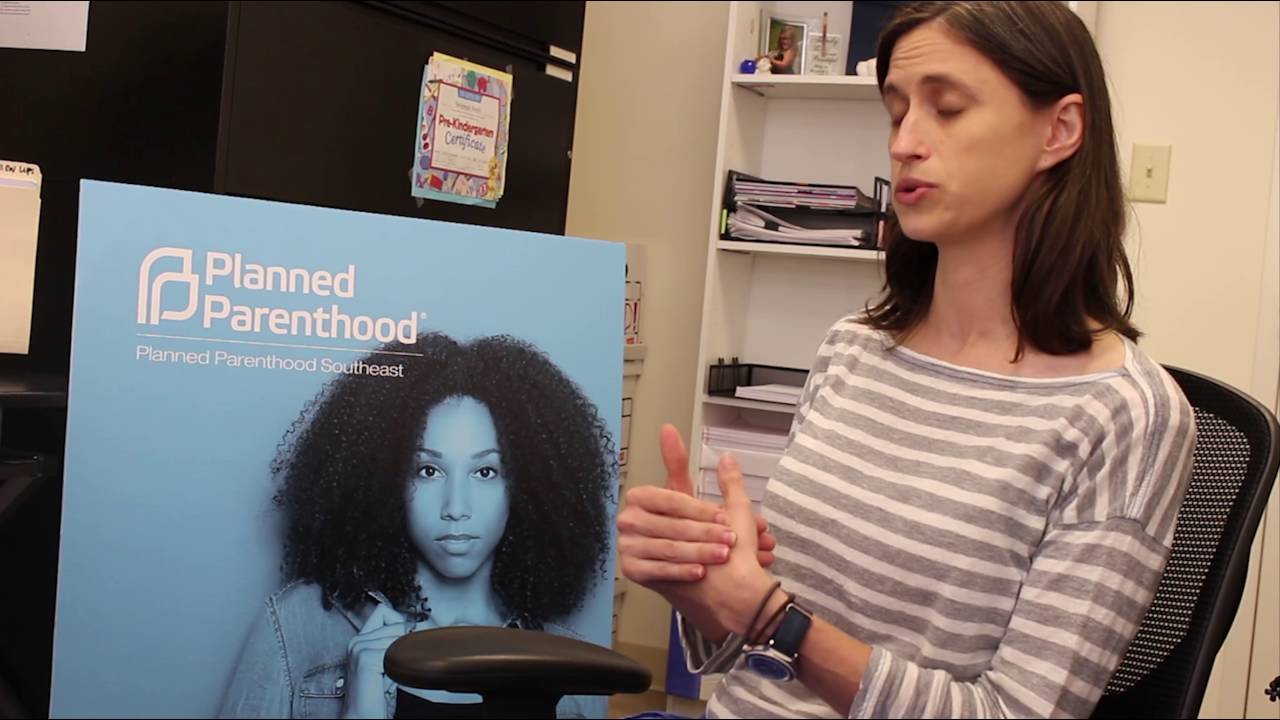Though the teen pregnancy rate in America is no longer as high as it was just a few years ago, it remains a pressing societal issue. Many schools in the greater Atlanta area are required to teach sex education classes, yet they teach abstinence as the only method of pregnancy prevention instead of providing teens with other resources to have safe sex. Is this strict focus on abstinence hurting our teens? What can we do to change that?
Ariel, Emma, KJ and Nova — participants in VOX Media Cafe — sought some answers for an interactive, multimedia presentation: “Sex Education in America: Are We Failing Our Teens?”
Their Story:
It’s an experience most students are familiar with by the time they reach high school: sitting in a room with 20 or so classmates, suddenly anxious to avoid eye contact with each other as the health teacher announces the start of their mandatory sex education unit. What follows is an uncomfortable week of learning parts of the reproductive system, names and symptoms (and in some cases, graphic pictures) of sexually transmitted diseases, and various ways to prevent pregnancy … well, except for that last part.
Georgia law requires that in order to be eligible for state funding, schools must teach a sex education course that covers the consequences of pregnancy, the risk that sexual activity can lead to contracting sexually transmitted infections, including HIV and AIDS, and the benefits of abstaining from sex as a way to prevent such circumstances. According to GCAPP, an expert on the state’s laws in this area, the state board of education also emphasizes that sex education in Georgia promote only “abstinence from sexual activity until marriage and fidelity in marriage as important personal goals.” There is no mention of condoms or birth control pills as other methods of protection, except when outlining the ways in which they might fail.
One might think that such heavy promotion of abstinence would significantly lower the teen pregnancy rate, but the statistics tell a different story: Every year, nearly 250,000 teenage girls in the United States become mothers. Less than 40 percent of those girls will graduate high school, and 78 percent of those who do not graduate end up living in poverty, according to the Multi-Agency Alliance for Children.
Molly Casey, director of Teen Parent Connection (MAAC’s program for pregnant or parenting teenagers), also highlighted in an interview that Georgia has the 13th highest teen birth rate in the country and is fourth highest in subsequent births.
Real problems arise when parents are unable or unwilling to discuss with their teens those methods of protection that are not taught by schools. Katherine George, now in her second year as director of education for Planned Parenthood Southeast, said this has often been the case in her experience.
“Parents like to see their teens as their little kids,” said George. “They don’t like to see them as growing up, as teens, as humans … that conversation just makes parents uncomfortable.” She went on to add: “A lot of times we think of it as ‘The Talk’ — this really uncomfortable, let’s-sit-down, turn off all the televisions and have this heart-to-heart conversation. But it doesn’t have to be that way.”
So, what can we do to change this system that is failing our teens? Creating a discussion around this delicate subject is difficult, but in this case, perhaps such a heart-to-heart conversation is necessary. The clamor of parents, educators and officials all trying to voice their opinions should not drown out the most important voices: those of the teens caught in the middle.




